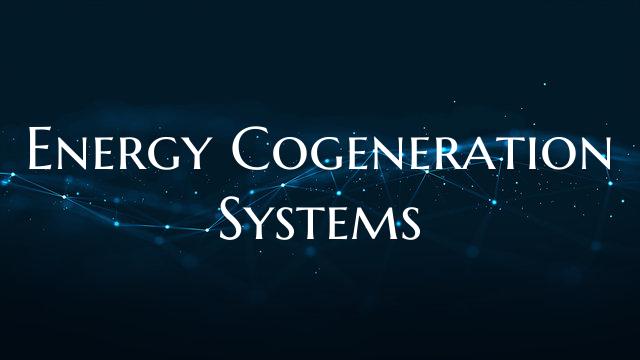Energy Cogeneration Systems
Energy Cogeneration Systems: Maximizing Efficiency and Sustainability
Introduction: Energy cogeneration systems, also known as combined heat and power (CHP) systems, are a groundbreaking technology that offers significant benefits in terms of efficiency, sustainability, and cost-effectiveness. By simultaneously producing electricity and utilizing waste heat for various applications, cogeneration systems are revolutionizing the way we generate and use energy. This article delves into the key aspects of energy cogeneration systems and explores how they contribute to a more sustainable and environmentally friendly energy landscape.
Maximizing Efficiency: One of the primary advantages of energy cogeneration systems is their exceptional efficiency compared to conventional energy generation methods. By harnessing both electricity and heat from a single fuel source, cogeneration systems can achieve overall efficiencies of up to 80%, significantly higher than the approximately 40% efficiency typically achieved by separate production of electricity and heat. This enhanced efficiency not only reduces energy costs but also minimizes greenhouse gas emissions, making cogeneration systems a more sustainable option for energy production.
Utilizing Waste Heat: A key feature of energy cogeneration systems is their ability to capture and utilize waste heat that would otherwise be lost in conventional power generation processes. This surplus heat can be used for a variety of purposes, such as space heating, water heating, or industrial processes, thereby further increasing the overall efficiency of the system. By maximizing the use of all available energy resources, cogeneration systems help to minimize waste and reduce the environmental impact associated with energy production.
Enhancing Sustainability: In addition to their efficiency benefits, energy cogeneration systems play a crucial role in promoting sustainability in the energy sector. By reducing the reliance on fossil fuels and maximizing the use of renewable energy sources, cogeneration systems help to lower carbon emissions and combat climate change. Furthermore, cogeneration can enhance energy security by providing a decentralized and reliable source of power that is less vulnerable to disruptions.
Cost-Effectiveness: While the initial investment in energy cogeneration systems may be higher than traditional energy generation methods, the long-term cost savings are substantial. By producing both electricity and heat from a single fuel source, cogeneration systems offer significant reductions in energy expenses and can provide a rapid return on investment. Additionally, cogeneration systems may be eligible for government incentives and rebates, further enhancing their cost-effectiveness.
Conclusion: Energy cogeneration systems represent a cutting-edge technology that offers a multitude of benefits, including enhanced efficiency, utilization of waste heat, sustainability, and cost-effectiveness. As the demand for clean and efficient energy solutions continues to rise, cogeneration systems are poised to play a key role in shaping the future of energy production and consumption. By integrating cogeneration technologies into our energy infrastructure, we can move towards a more sustainable and environmentally friendly energy landscape.

